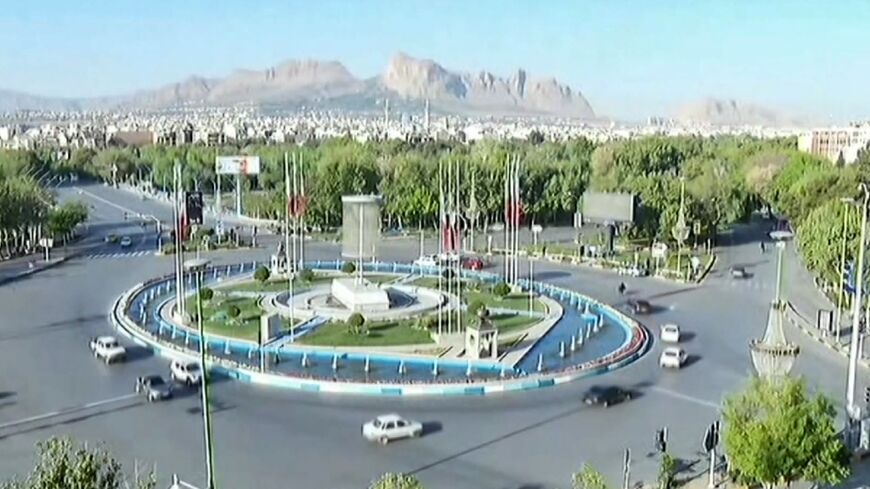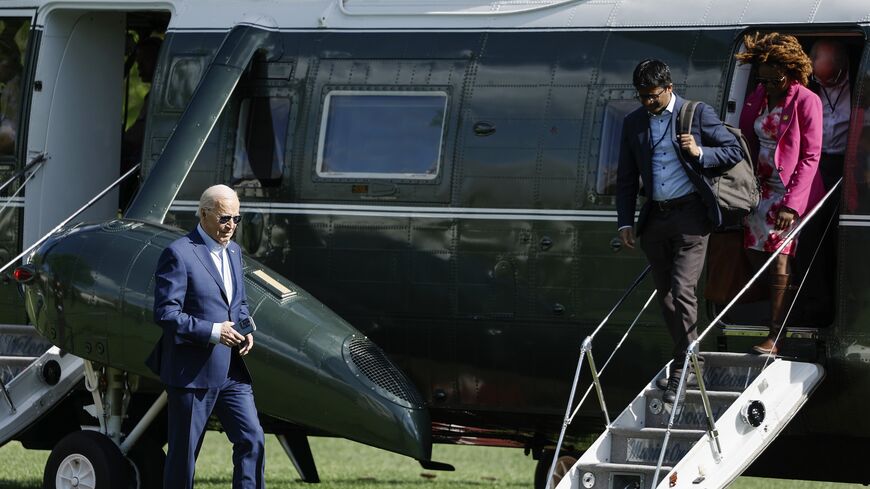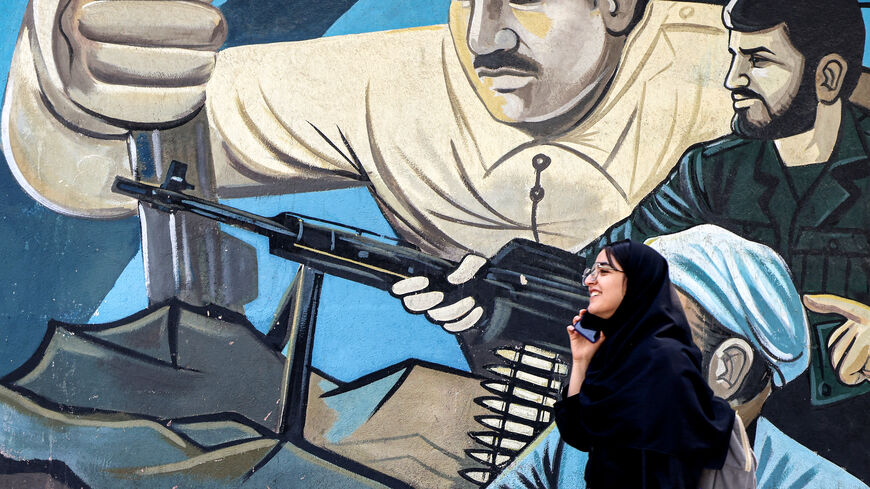Israel carries out strikes in Isfahan, Iran: reports
Explosions were heard in Qahjaverestan, northeast of Isfahan, early Friday morning as US officials confirmed that Israel carried out strikes against Iran.

Israel carried out retaliatory strikes against Iran early Friday morning local time, reportedly targeting locations in the west of the country. Explosions were heard in the city of Isfahan, prompting commercial flights to divert from their routes.
Senior US officials speaking to ABC, CBS and NPR confirmed the strikes.
Last weekend, Iran launched 330 precision-guided drones as well as ballistic and cruise missiles at Israel, in an unprecedented strike by Tehran directed at Israeli territory. Iran said the attack was in retaliation for an April 1 strike on its consulate in Syria that has been widely attributed to Israel and killed seven Islamic Revolutionary Guard Corps personnel, including two commanders.
Bloomberg reported that Israeli officials notified the United States earlier on Thursday that they planned to respond to Saturday’s attack in the next 24 to 48 hours. Two US officials told CNN that the Israelis indicated to Washington that they would not attack nuclear targets.
Iran's semi-official Fars news agency reported at around 5:30 a.m. local time (10:00 p.m. EST Thursday) that explosions were heard in Qahjaverestan, northeast of Isfahan.
A senior Iranian military official in Isfahan told the Islamic Republic News Agency that the explosions were caused by Iran's air defenses that fired at a suspicious object east of Isfahan. Isfahan's international airport is located just northeast of Qahjaverestan.
Iran's semi-official Mehr News Agency reported that flights over Tehran, Shiraz and Isfahan had been suspended. A few hours later, Iran’s Civil Aviation Authority announced the removal of restrictions on some airports in the country, and operations reportedly resumed at the Imam Khomeini and Mehrabad Airports in Tehran and the airport in Isfahan.
Meanwhile, high-level Iranian government officials have refrained from mentioning the suspected Israeli strike in their public speeches or comments. In a speech on Friday at a public gathering in Semnan province, east of Tehran, Iranian President Ebrahim Raisi defended the April 13 attack on Israel, saying it brought “unity” to the Iranian nation. He did not mention the explosions in Isfahan, according to a report by IRNA.
Similarly, in a social media post on Friday, Iranian Foreign Minister Hossein Amir-Abdollahian said he had warned Israel against “any new adventure” during meetings he had attended at the United Nations on Thursday, but refrained from mentioning Friday's reported strikes.
🚨 BREAKING: Israel appears to have attacked Esfahan, Iran.
— Holly Dagres (@hdagres) April 19, 2024
This video was posted by the IRGC. pic.twitter.com/YLEFEHcxqQ
Speaking on the sidelines of the G7 summit in Italy on Friday, US Secretary of State Antony Blinken swatted away questions about the suspected attack.
“I’m not going to speak to these reported events,” Blinken was quoted as saying by Agence France-Presse, adding that the United States was “not involved in any offensive operation.”
“All I can say is for our part and for all the members of the G7, our focus is on de-escalation,” Blinken said.
The Isfahan explosions come as tension soared in the region following Iran’s attack on Israel on Saturday and into Sunday. Israel said on Monday that it would retaliate for the attack.
Isfahan, home to a major airbase for the Iranian military as well as sites associated with Iran's nuclear program, is located some 215 miles (346 kilometers) south of Tehran, the Associated Press reported. The IRGC–affiliated Tasnim news agency reported that nuclear sites in Isfahan are safe.
That claim has been confirmed by the UN atomic agency.
“IAEA can confirm that there is no damage to Iran’s nuclear sites,” the International Atomic Energy Agency said on X Friday, adding that it is closely monitoring the situation.
The agency called for “extreme restraint from everybody” and added, “Nuclear facilities should never be a target in military conflicts.”
As fear of a full-blown conflict in the region grows, a senior Iranian official said that Iran has no plan for immediate retaliation to Friday’s attack in Isfahan, stopping short of blaming Israel for it.
“The foreign source of the incident has not been confirmed,” the Iranian official told Reuters, speaking on condition of anonymity. “We have not received any external attack, and the discussion leans more towards infiltration than attack.”
Global reactions call for restraint
Friday’s attack prompted renewed calls for de-escalation in the region.
Oman condemned the alleged Israeli attack on Isfahan and Israel’s repeated military attacks in the region.
“Oman renews its calls on the international community for the need to resolve the causes of tensions and conflicts through diplomacy and political solutions,” read a Foreign Ministry statement posted on X.
Meanwhile, Turkey’s Foreign Ministry warned in a statement that the tensions “sparked by the Israeli attack on the Iranian Embassy in Damascus, which was against international law, may turn into a permanent conflict,” the statement read. “We call on all parties to avoid steps that could lead to a larger conflict.”
Egypt’s Foreign Ministry has issued a statement expressing its “deep concerns” over the continued Iranian-Israeli escalation and warned of dangerous impacts on the region’s security.
It urged both parties to “exercise the utmost levels of self-restraint and fully comply with the rules of international law” and stressed Egypt’s readiness to continue its contacts with all concerned and influential parties to contain the escalation.
European Commission President Ursula von der Leyen called on all concerned parties to exercise restraint and avoid further escalation in the region.
“We have to do everything possible that all sides restrain from the escalation in that region,” von der Leyen told reporters during a visit to Finland. “It is absolutely necessary that the region stays stable and that all sides refrain from further action.”
China has expressed its rejection of any actions that might lead to further escalation in the region.
“China opposes all actions that would escalate tensions and will continue to play a constructive role in calming the situation,” the Chinese Foreign Ministry spokesperson said in a statement, according to AFP.
The Chinese Embassy in Tehran reportedly called on its nationals in Iran to take precautions in light of the security risks in the country, according to Saudi-owned Al-Hadath television.
Jordan also joined the chorus urging de-escalation in the region. Foreign Minister Ayman Safadi warned against the “danger of regional escalation” in a post on X. “We condemn all actions that threaten dragging the region into war. Israeli-Iranian retaliations must end. The inhumane war on Gaza must end now,” he added.
The United Arab Emirates expressed similar concerns. In a press statement, the Emirati Foreign Ministry called for restraint to avoid dragging the region “into new levels of instability.”
The ministry stressed the need to reach “substantial solutions” to de-escalate the ongoing regional tensions via dialogue and diplomacy.
The Kremlin has also spoken out on the issue, saying Russia is looking into reports of the alleged Israeli attack on Iran and that it would be “premature to comment” until its nature becomes clear.
“We continue to favor restraint on the part of the concerned parties and to refrain from any action that could provoke further escalation in such a sensitive region,” Kremlin spokesperson Dmitry Peskov told reporters on Friday.
This breaking story has been updated since first publication.









